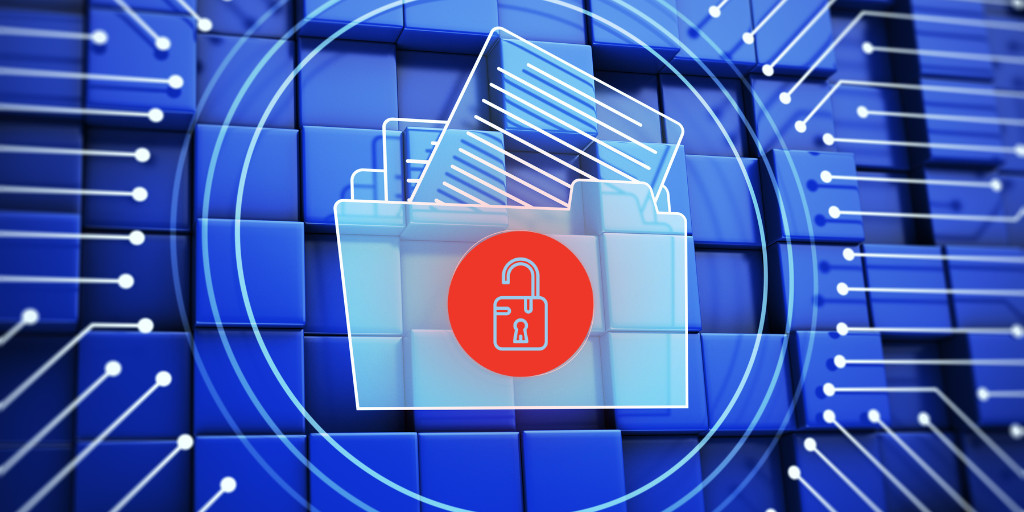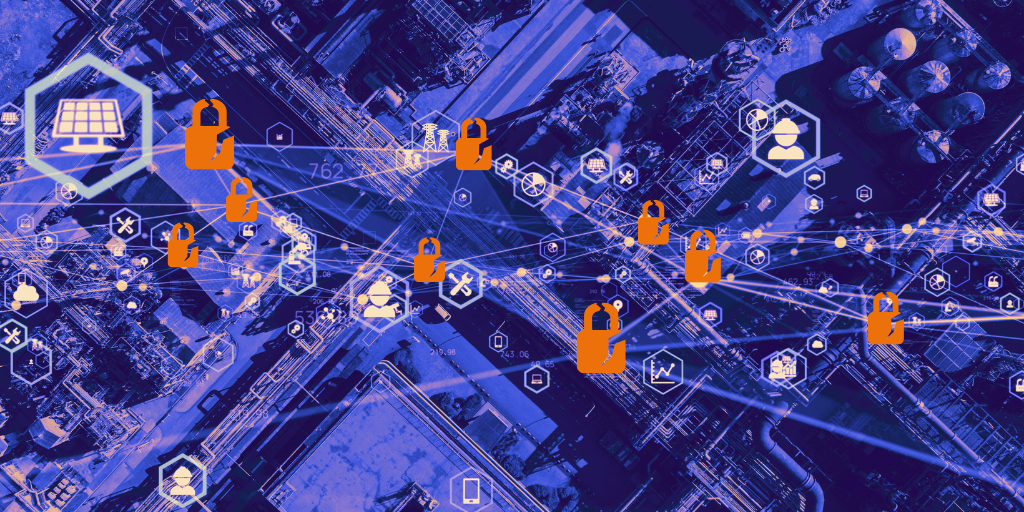Data Protection Law: complying with the GDPR
The General Data Protection Regulation (GDPR) is a comprehensive data protection law that came into effect on May 25, 2018. It applies to all...

Small and medium-sized businesses (SMBs) are increasingly becoming prime targets for data breaches. This blog examines the reasons behind their vulnerability and explores potential measures to protect them.
The cyber threat landscape is continually evolving, with small and medium-sized businesses (SMBs) finding themselves increasingly in the crosshairs of cybercriminals. This evolution is driven by the rapid advancement of technology, which not only provides new tools for businesses but also equips cybercriminals with more sophisticated methods of attack. Unlike larger enterprises that have the resources to invest in comprehensive cybersecurity infrastructures, small to medium-sized businesses (SMBs) often lack the sophisticated defenses needed to combat these threats effectively. This disparity in security capabilities makes SMBs particularly vulnerable, as cybercriminals view them as easy targets due to their typically weaker security measures and the potential for a significant payout. The financial incentives for targeting small to medium-sized businesses (SMBs) are substantial, as these businesses often hold valuable data but may lack the means to protect it adequately.
In addition to traditional threats such as phishing and malware, the rise of AI-driven attacks has added a new layer of complexity to the threat landscape. These AI-driven attacks are more sophisticated, leveraging machine learning algorithms to adapt and evolve, making them harder to detect and capable of causing significant damage. For instance, AI can be used to automate phishing attacks, making them more personalized and convincing, or to develop malware that can bypass traditional security measures. As technology advances, so too do the methods employed by cybercriminals, making it imperative for small to medium-sized businesses (SMBs) to stay ahead of the curve. This requires not only adopting the latest security technologies but also fostering a culture of cybersecurity awareness and resilience within the organization. By understanding the evolving nature of cyber threats and proactively enhancing their defenses, small to medium-sized businesses (SMBs) can better protect themselves against the ever-growing array of cyber risks.
One of the primary reasons small and medium-sized businesses (SMBs) are particularly vulnerable to cyberattacks is their limited resources and expertise. Many small to medium-sized businesses (SMBs) operate under tight financial constraints, which often means they cannot afford to hire dedicated IT security staff or invest in the advanced cybersecurity solutions necessary to protect against the increasingly sophisticated threats posed by cybercriminals. This scarcity of resources leaves them ill-equipped to fend off sophisticated cyberattacks, as they lack the financial means to implement comprehensive security measures that larger enterprises might take for granted.
Moreover, the absence of cybersecurity expertise within these organizations can lead to a cascade of vulnerabilities. Without knowledgeable personnel to guide the development and implementation of security protocols, small to medium-sized businesses (SMBs) often fall short in providing adequate training and awareness programs for their employees. This gap in education makes employees more susceptible to social engineering attacks, such as phishing, where attackers manipulate individuals into revealing sensitive information or unwittingly granting access to secure systems. The lack of necessary knowledge and tools means that small to medium-sized businesses (SMBs) remain attractive targets for cybercriminals who are constantly on the lookout for easy prey. These attackers are keen to exploit the vulnerabilities that arise from insufficient security measures, knowing that small to medium-sized businesses (SMBs) often hold valuable data but lack the robust defenses to protect it. As a result, SMBs find themselves in a precarious position, needing to balance their limited resources with the growing necessity for effective cybersecurity strategies to safeguard their operations and data.
The financial repercussions of a data breach can be devastating for small and medium-sized businesses (SMBs), often resulting in a cascade of direct and indirect costs that can severely impact their operations. Direct costs are typically immediate and tangible, including hefty fines imposed by regulatory bodies for non-compliance with data protection laws, substantial legal fees incurred during litigation processes, and the significant expense of remediation efforts required to address the breach and prevent future incidents. These remediation efforts may involve hiring cybersecurity experts to conduct thorough investigations, implementing new security measures, and restoring compromised systems and data.
However, the indirect costs of a data breach can be even more damaging and far-reaching, affecting the business in ways that are not immediately quantifiable. One of the most significant indirect costs is the loss of customer trust, which can have a long-lasting impact on the business's reputation. Customers who feel their personal information is not secure may choose to take their business elsewhere, resulting in a decline in both customer retention and acquisition. This erosion of trust can also lead to reputational damage, as negative publicity surrounding the breach may deter potential clients and partners from engaging with the business. Furthermore, the potential for lost business opportunities is substantial, as the company may struggle to secure new contracts or partnerships due to perceived vulnerabilities in its security posture.
Beyond the financial impact, data breaches can also have profound effects on employee morale and productivity. When a breach occurs, the subsequent panic and disarray can disrupt normal business operations, resulting in additional losses. Employees may feel demoralized and anxious about the security of their information and the stability of their employment, which can result in decreased productivity and increased turnover. The stress and pressure of managing the fallout from a breach can also lead to burnout among staff, further exacerbating operational challenges. In severe cases, the combination of these factors can threaten the business's very survival, as the cumulative financial strain and operational disruptions may push the company to the brink of closure. Therefore, SMBS must recognize the multifaceted impact of data breaches and take proactive measures to strengthen their cybersecurity defenses, thereby safeguarding their future.
To effectively safeguard against the escalating threat of cyberattacks, small and medium-sized businesses (SMBs) must embrace a comprehensive and multi-layered approach to cybersecurity. This strategy should encompass the implementation of robust security measures, including the deployment of advanced firewalls that act as a barrier against unauthorized access and intrusion detection systems that monitor network traffic for suspicious activities. Regular software updates are crucial for patching vulnerabilities and ensuring that all systems are fortified against the latest threats. Furthermore, investing in comprehensive cybersecurity training programs for employees is essential. These programs should educate staff on recognizing and responding to social engineering attacks, such as phishing, which exploit human psychology to gain access to sensitive information. By fostering a culture of cybersecurity awareness, employees become the first line of defense, significantly reducing the risk of successful attacks.
In addition to internal measures, small to medium-sized businesses (SMBs) should consider partnerships with managed security service providers (MSSPs). These partnerships can provide access to cutting-edge security solutions and specialized expertise that may be beyond the financial and technical reach of SMBs. MSSPs offer a range of services, from continuous monitoring and threat intelligence to incident response and compliance management, allowing SMBs to benefit from a higher level of security without the need for extensive in-house resources.
Regularly conducting thorough risk assessments is another critical component of a robust cybersecurity strategy. These assessments help identify potential vulnerabilities and prioritize areas for improvement, ensuring that resources are allocated effectively. Developing a detailed incident response plan is equally essential, as it prepares the organization to respond swiftly and efficiently in the event of a breach. This plan should outline clear roles and responsibilities, communication protocols, and recovery procedures to minimize damage and restore operations as quickly as possible.
By adopting these proactive and comprehensive measures, small to medium-sized businesses (SMBs) can significantly strengthen their defenses and reduce their susceptibility to cyberattacks. This not only protects their valuable data and assets but also enhances their reputation and trustworthiness in the eyes of customers and partners, ultimately contributing to their long-term success and resilience in an increasingly digital world.

The General Data Protection Regulation (GDPR) is a comprehensive data protection law that came into effect on May 25, 2018. It applies to all...

In today's digital age, small businesses are increasingly vulnerable to sophisticated cyber threats, including supply chain attacks that exploit...

One ofthe most critical elementsof a comprehensive cybersecurityplanfor small to medium-sized businesses (SMBs)in today's digitalenvironment is